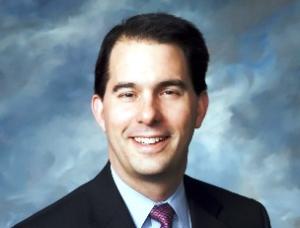A self-described skeptic, Dr. David Casarett set out to find out the truth about medical marijuana. The result is his new book, "Stoned: A Doctor's Case for Medical Marijuana." It's a good and interesting read.
Here are the most recent drug war deaths. Some get wider attention, some don't.
The California legislature is still trying to pass a medical marijuana regulation bill, the ground looks fertile for another initiative in Arkansas, a Michigan bureaucrat overrides his advisory panel and refuses to allow PTSD as a qualifying condition, and more.
More cops with pill problems and more deputies with ethics problems.
The controversial ResponsibleOhio legalization initiative continues to make news, a Florida legalization initiative kicks-off tomorrow, the Dark Web's biggest drug marketplace is shutting down -- at least temporarily -- and more.
California could still see a medical marijuana regulation bill this year, a Michigan officials ignores his own advisory panel and bars medical marijuana for autistic kids, California counties strike out in an effort to make Big Pharma pay for damages related to prescription opiates, and more.
Two sets of Massachusetts legalizers get the go-ahead for signature gathering, Denver activists will negotiate with the city over social marijuana use, Hillary Clinton unveils drug policy proposals, DC HIV infections drop thanks to needle exchanges, and more.
Another Indian tribe will grow marijuana, Arkansas voters want medical marijuana, British MPs will debate marijuana legalization, psychedelic drugs may have value in treating some mental conditions, and more.
Stoned: A Doctor's Case for Medical Marijuana, by Dr. David Casarett (2015, Current Press, 289 pp., $27.95 HB)
Medical marijuana is now legal in about half the US (even more if you include those states that have now passed limited
CBD cannabis oil laws), but it still remains a controversial medical treatment. Many people still assume that it's a joke or, more nefariously, a charade designed to pave the way for the legalization of recreational marijuana.
Dr. David Casarett was one of them. He admits in the opening pages of Stoned: A Doctor's Case for Medical Marijuana that that he thought it was joke and that when he talked about medical marijuana as a treatment, he always mentally added quotation marks around "treatment." But in those same opening pages, he is introduced to "Caleb," a 40-something man from Michigan suffering from rectal cancer who has traveled to Colorado in search of medical marijuana and who swears by it.
"Caleb" has a shelf full of prescription medications, including heavy opiates, but he tells Casarett he doesn't want to use them because of the side effects and that marijuana works better at relieving his pain and making him tolerable to be around. The doctor has found himself a real life, bona fide medical marijuana patient.
But Casarett, a physician, researcher, and tenured faculty member at the University of Pennsylvania's Perelman School of Medicine, knows that anecdotal evidence isn't the same as good science. Ideally, "Caleb" would have been in a peer-reviewed double-blind clinical study along with hundreds of thousands of other patients. Casarett wants the science to be there, but it isn't yet, and he examines the reasons for that.
One of them is political. For years, the DEA has been an obstacle to research on marijuana's medical applications, all the while claiming that marijuana has "no accepted medical use." And with the DEA blocking the doorway, that means funding and implementing medical marijuana studies is more difficult.
But another reason is the nature of marijuana itself. It's a plant, not a synthesized chemical, and it contains hundreds of cannabinoid compounds. Western medical science will want to tease out and test each of those compounds in isolation, but it also needs to deal with the synergistic effects of the cannabinoids on each other. And then there are terpenes, the organic compounds that create essential oils, and are linked to psychoactive and medicinal effects as well. Western science doesn't want to deal with whole plants, but if it's going to address medical marijuana, it's going to have to.
As Casarett undertakes his year-long search for the truth about the plant and its medical applications, he takes the reader on a sometimes surprising, sometimes outright amusing tour of medical marijuana. We meet a young couple who turned to it to treat their two-year-old daughter's seizures, a young man who used it to deal with PTSD after a violent assault, an Israeli nursing home volunteer using it to treat anxiety and confusion in patients with dementia.
We also meet leading scientists and researchers in the field, such as Dr. Donald Abrams, the San Francisco-based oncologist, who warns Casarett of quackery surrounding claims that marijuana can cure cancer. While there are some promising research results, the science just isn't there yet, and when hope and hucksterism collide, the results can be not only sad, but tragic.
Casarett comes away convinced that marijuana does indeed have proven medical uses -- he cites neuropathic pain and nausea -- as well as conditions that may well be helped by it, such as insomnia, PTSD, or the symptoms of dementia or Parkinson's, but that it also has dangers. Casarett worries about marijuana's addictive potential, which he calls "substantial," and he think marijuana impairs drivers as much as alcohol does. He also notes the danger of psychotic episodes or, possibly, schizophrenia, as a result of marijuana use.
Even-handed observer that he is, he notes that the danger of pot addiction or the miniscule chance of developing psychosis is "trivial" with patients with serious, life-threatening and/or terminal medical conditions, but he also notes that many patients are young people not suffering from life-threatening conditions, and the long-term dangers are worth watching.
One of Casarett's most interesting contributions is to call for marijuana to be treated not like a medicine, but like an herbal remedy: "It's essentially plant-based stuff with numerous active and inactive ingredients, only some of which we understand," he writes. That's not a fatal flaw, he argues, pointing to the widespread use of herbal remedies like black cohosh, Echinacea, Gingko Biloba, and St. John's Wart.
He also calls for marijuana's cannabinoids to be placed in Schedule II of the Controlled Substances Act. This approach seems eminently sensible. Leave the raw plant alone, schedule the chemical compounds. That way, marijuana can be medicalized without leaving non-medicinal consumers looking for a prescription to get high. With Stoned, Dr. Casarett has embarked on a knowledge-seeking journey, and he has found much to mull over. Readers who are game enough to join him are going to learn some things and have a good time along the way. Highly recommended.
back to top
The August 19 death of a black St. Louis teenager shot by police executing a drugs and guns search warrant got national attention and sparked local protests, but it was by no means the only drug war-related death in recent weeks.
At least five people have died in the drug war in the past month, bringing
the number of people to die in the drug war so far this year to 42.
Most of those deaths went largely unremarked (except for the killing of a Memphis police officer, which sparked predictable outrage), but the killing of black teenager Mansur Ball-Bey by a white St. Louis police officer drew both protests and national concern as yet another example of police violence against black men. The fact that it happened in St. Louis, just minutes away from Ferguson, Missouri, where the death of Michael Brown at the hands of police a year ago sparked violent protests and helped lead to the formation of the Black Lives Matter movement, only heightened attention.
According to Reuters, police were executing a search warrant for drugs and guns at a residence when two young men fled out the back door of the home. Police said Ball-Bey, 18, turned and pointed a gun at them, and officers then fired four times, killing him.
Police said Ball-Bey's gun was stolen and that they recovered crack cocaine at the scene.
Local residents didn't buy the police account, and dozens of people quickly blocked a nearby intersection, where police arrested three people. Later that evening, more protesters gathered, with some throwing rocks at police and police responding with tear gas. The protests have continued.
An autopsy showing that Ball-Bey was shot in the back has led to more distrust and suspicion, even though police have offered an explanation, saying that officers were in different locations, and that when Ball-Bey turned toward one officer, he turned away from another one who fired. The killing remains under investigation and intense public scrutiny.
Even though police and investigating prosecutors may be able to justify Ball-Bey's death -- he had a gun, he pointed it at police -- the race of the victim and the shooter made the killing especially combustible. Other drug war deaths deserve similar scrutiny, but they rarely get it. Most of the time there is merely the initial report of the death, typically based on police comments or press releases, then… nothing.
Not all drug war deaths come at the hands of the police -- sometimes, though rarely, they are the victims -- and not all drug war deaths are homicides. Some are accidents. But the bottom line with these drug war deaths is that they would not have happened if we had a more enlightened response to drugs. These are people who have been sacrificed on the altar of drug prohibition.
Here are the others who died in the drug war in the past month:
- In Midland, Texas, a teenage mother died on July 29 after swallowing four grams of methamphetamine during a traffic stop in a bid to protect her boyfriend, the father of her infant son. According to News West 9, Sandy Brooke Franklin, 18, and Zane Paul O'Neal, 22, were pulled over by Midland Police, and O'Neal, who was on probation, told her to swallow the drugs. She did, but ended up going to jail anyway over two traffic warrants. While in jail, she did not reveal that she had swallowed the drugs, but 36 hours later, guards noticed she was unwell. Only then did she admit ingesting the meth, but it was too late -- she died in the hospital.
- In Memphis, a Memphis police officer was shot and killed after interrupting a small-time marijuana deal on August 1. Officer Sean Bolton had approached a parked vehicle, when a passenger got out and fought with Bolton, then shot him. Police later found 1.7 grams of marijuana and a set of scales in the car. Police said they normally wouldn't even arrest someone for that tiny amount of pot, but the accused shooter, Tremaine Wilbourne, was on parole and likely would have been jailed.
- Near Chinook Pass, Washington, a state trooper died on August 6 while investigating a reported marijuana grow. According to the Yakima Herald-Republic, Detective Brent Hanger, 47, an undercover agent on a statewide drug task force was following a tip near the mile-high pass when he "suffered a medical condition and died." He had complained of chest pains and shortness of breath before collapsing. No word on whether they ever found that pot garden.
- In Hobbs, New Mexico, a fugitive drug suspect was shot and killed by Lea County Drug Task Force officers on August 12. According to the Hobbs News-Sun, William "Wild Bill" Smith had been on the run since a drug raid the previous week and was killed after a high-speed chase. He was a passenger in the vehicle. A week later, the New Mexico State Police provided an update on the case, which added little information except to say that "a firearm was located in the immediate area of Mr. Smith." The State Police said the investigation was ongoing.
- In North East, Maryland, a man on probation with a history of drug offenses and drugs in his vehicle was shot and killed as he struggled with a state trooper on August 21. According to Baltimore's CBS Local News, Charles Hall, 30, was in a Walmart parking lot when he was spotted by the trooper, who attempted to place him under arrest. "… The man refused to submit, resisted, and a physical altercation began between the wanted person and the trooper. This actually moved to the driver's side of the suspect's vehicle, a physical struggle was going on, the suspect was able to get his key into the ignition, get the vehicle started," Maryland State Police spokesperson Greg Shipley explained. "So the trooper during this struggle as the vehicle was accelerating fired his department issued pistol and fatally wounded this individual." AlterNet ran a story on this incident last week that included video of Hall's wife screaming "He wasn't fucking armed!" in the immediate aftermath of the shooting.
Since Drug War Chronicle started tracking these deaths in 2011, they have averaged about one a week or 50 a year. But this year, we're already up to 42.
back to top
The California legislature is still trying to pass a medical marijuana regulation bill, the ground looks fertile for another initiative in Arkansas, a Michigan bureaucrat overrides his advisory panel and refuses to allow PTSD as a qualifying condition, and more.
CaliforniaOn August 28, an appeals court upheld Bakersfield's dispensary ban ordinance. The Fifth Appellate District Court in Fresno agreed with a lower court that the ban did not violate the state Environmental Quality Act because the city did not change existing zoning laws and thus was exempt from the act. Attorneys for Bakersfield said they were already going after existing dispensaries through civil actions and may now seek preliminary injunctions as well. There are an estimated 44 dispensaries in the city.
On August 30, a medical marijuana regulation bill was gutted, but was still alive. A measure aimed at bringing the state's medical marijuana industry into an era of statewide regulation passed out of the Senate Appropriations Committee that Thursday, but there was nothing in the version of the bill approved by the committee. Assembly Bill 266 was gutted and now simply reads: "It is the intention of the state legislature to regulate medical marijuana." It appears the move is designed to make room for input from the office of Gov. Jerry Brown (D), which has now submitted its language. The governor's language largely mirrors earlier language and would set up a tightly regulated system. The legislature has until next month to get the bill passed.
Arkansas
On Wednesday, a new Arkansas poll had support for medical marijuana at 84%. A new Talk Business & Politics poll shows very strong support for medical marijuana in the state. More than half (56%) strongly agreed that adults should be able to use marijuana with a doctor's prescription, with another 28% somewhat agreeing. Only 14% disagreed. A medical marijuana initiative barely failed there in 2012, winning 48.5% of the vote. That initiative included a provision for home grows, but this poll found a slight majority opposing home grows. Support for outright legalization was much lower, at 42%.
Michigan
On August 30, the state rejected medical marijuana for autism. Although an advisory panel recommended allowing medical marijuana for autism, Mike Zimmer, the director of the Department of Licensing and Regulatory Affairs, said Thursday he was rejecting that recommendation. Zimmer said there was not sufficient research and he questioned whether cannabis oil is even allowed under the state's medical marijuana law. Advocates said he was mistaken in his reading of the law, and said they were frustrated with the decision.
[For extensive information about the medical marijuana debate, presented in a neutral format, visit MedicalMarijuana.ProCon.org.]
back to top
More cops with pill problems and more deputies with ethics problems. Let's get to it:
In
Mogadore, Ohio,
a Highland Hills police officer was arrested August 12 after a raid by the Summit County Drug Unit recovered large amounts of steroids, as well as
oxycodone,
hydrocodone, methadone,
Xanax,
Adderall, cash, syringes, and three handguns at a residence. The arrest was only announced last week. Anthony
Borway, a part-time Highland Hills officer was charged with possession of and trafficking in drugs/anabolic steroids, aggravated drug trafficking, aggravated drug possession, and possession of drug instruments. His girlfriend, a nurse, was also arrested.
In Somerville, Massachusetts, a former Somerville police officer was arrested August 27 on drug and theft charges. Samuel Stanford went down after another officer reported that his service weapon had been stolen from his locker, and an investigation produced video showing Stanford jamming a door with a clock, preventing it from locking, then entering the locker area and leaving minutes later with what appeared to be the missing gun in his pocket. When he was arrested for the weapons theft, police found drugs, ammunition, another handgun, and cash in his home. He was fired from the department for opiate use a month ago and is now charged with possession and intent to distribute oxycodone, as well as the weapons theft charge.
In Jacksonville, Georgia, a Jacksonville sheriff's deputy was arrested last Thursday for helping her son elude police in a major drug investigation. Deputy Betty Pearson, 42, is charged with aiding escape after giving her 20-year-old son the heads up that he and her former husband -- her son's father -- were about to get popped in a bust that netted 70 pounds of cocaine and $479,000 in cash. Junior only got away for a few days, and now mom is out on bail.
In Gainesville, Florida, two former Hall County Sheriff's deputies were sentenced last Friday to federal prison time on corruption charges. David Treadwell, 33, got a year and day after pleading guilty to accepting bribes of $200 and $300 to warn a drug dealer if he was being investigating for marijuana possession, while jailer Austin Herring, 19, got six months for smuggling what he thought was cocaine into the county jail. He copped to attempting to possess cocaine with the intent to distribute after twice accepting $500 to sneak the fake dope into the jail.
back to top
The controversial ResponsibleOhio legalization initiative continues to make news, a Florida legalization initiative kicks-off tomorrow, the Dark Web's biggest drug marketplace is shutting down -- at least temporarily -- and more.

"Buddie," the Ohio legalization initiative mascot (responsibleohio.com)
Florida Legalization Initiative Rolls Out Tomorrow. An initiative campaign to legalize marijuana in the Sunshine State will begin with a news conference in Fort Lauderdale tomorrow morning. The Sensible Florida PAC will announce a signature-gathering drive for a constitutional amendment to regulate marijuana like alcohol. Some 683,000 valid voter signatures will be needed, and since this is a constitutional amendment, it will need 60% of the vote to pass.
Ohio Legalizers Roll Out "Buddie" Mascot, Get Flak From Child Advocates. The folks behind the ResponsibleOhio legalization initiative have introduced their mascot, "Buddie," a cape-wearing superhero with a green marijuana bud for a head and a "B" logo over a picture of a pot leaf. Some child advocates grumbled that the mascot would lead kids to believe that pot is OK. ResponsibleOhio said Buddie will only visit college campuses filled with voting age college students.
Ohio Legalizers Go to State Supreme Court Over Ballot Language. ResponsibleOhio asked the Supreme Court today to reject the state Ballot Board's wording of its initiative. In a 40-page complaint, the group claimed the board used prejudicial language, deliberate omissions, and outright falsehoods by Secretary of State Jon Husted (R) and his staff, and that the resulting language is "fatal to the validity of the ballot."
Drug Policy
Maine Governor to Call Out National Guard to Fight Drugs. Tea Party Republican Gov. Paul LePage said Wednesday the state would ramp up police efforts to fight drugs in the state, including deploying the National Guard to support the struggle against drug trafficking. He also renewed his pleas for more funding for more cops and prosecutors, a stance that leaves him at odds with the state legislature. LePage's remarks come a day after drug czar Michael Botticelli told a Maine roundtable the state needs more drug treatment facilities.
International
Dark Web's Largest Drug Marketplace Closing Its Doors -- For Now. Agora, the reigning champion among Dark Web drug sellers, is shutting down at least temporarily to heighten its defenses against intruders who may be seeking to identify and bust the site's operators and servers. The site's anonymous administrators said they had detected "suspicious activity" they thought was aimed at breaking the anonymity software Tor browser, which could reveal not only administrators, but customers. "At this point, while we don't have a solution ready it would be unsafe to keep our users using the service, since they would be in jeopardy," Agora said. "Thus, and to our great sadness we have to take the market offline for a while, until we can develop a better solution. This is the best course of action for everyone involved."
back to top
California could still see a medical marijuana regulation bill this year, a Michigan official ignores his own advisory panel and bars medical marijuana for autistic kids, California counties strike out in an effort to make Big Pharma pay for damages related to prescription opiates, and more.

In Afghan fields the poppies grow... (unodc.org)
California Medical Marijuana Regulation Bill Gutted, But Still Alive. A measure aimed at bringing the state's medical marijuana industry into an era of statewide regulation passed out of the Senate Appropriations Committee Thursday, but there was nothing in the version of the bill approved by the committee. Assembly Bill 266 was gutted and now simply reads: "It is the intention of the state legislature to regulate medical marijuana." It appears the move is designed to make room for input from the office of Gov. Jerry Brown (D), which has now submitted its language. The governor's language largely mirrors earlier language and would set up a tightly regulated system. The legislature has until next month to get the bill passed.
Michigan Rejects Medical Marijuana for Autism. Although an advisory panel recommended allowing medical marijuana for autism, Mike Zimmer, the director of the Department of Licensing and Regulatory Affairs, said Thursday he was rejecting that recommendation. Zimmer said there was not sufficient research and he questioned whether cannabis oil is even allowed under the state's medical marijuana law. Advocates said he was mistaken in his reading of the law, and said they were frustrated with the decision.
Drug Policy
Feeling Political Pressure, Los Angeles County Promoter Cancels Rave After Deaths at Earlier Event. Organizers of HARD Presents… A Night at Fairplex have canceled the September 10 rave in the face of threats from county commissioners to ban raves on county properties after two teens died at the HARD Summer festival at the same venue in early August. The promoter is also scaling back its annual Day of the Dead party set for October 31 and November 1. But some county commissioners say they are still moving forward with plans for a ban.
California Judge Throws Out Counties' Lawsuit Against Prescription Opiate Manufacturers. An Orange County Superior Court judge Thursday dismissed a lawsuit filed against five of the world's biggest pharmaceutical companies by Southern California counties seeking to make them pay for damages related to prescription drug abuse. The suit accused the companies of fraudulently marketing the pain relievers to undercut the warning labels required by the FDA. The pharmaceutical companies, including PurduePharma, the makers of Oxycontin, argued that the FDA had exclusive jurisdiction. The judge agreed, dismissing the case, but leaving an opening for it to be re-filed after an FDA evaluation.
International
US Rules Out Opium Eradication in Afghanistan, At Least For Now. The US will not support eradication programs in the world's largest opium producer until and unless there is a comprehensive alternative development program that will provide a stable source of income for poppy farmers, State Department spokesman John Kirby said Thursday. "This is a tough problem to get at, but to simply, you know, work towards some eradication program -- to burn them to the ground, while that may have an immediate effect, it doesn't necessarily do anything for long-term stability and security for Afghan farmers," he said. "You have to be able to work on supplementing it for something else, and we have worked with Afghan authorities for many years about trying to find other crops that farmers can grow to make a good living, and there's been some success in that," he said.
back to top
Two sets of Massachusetts legalizers get the go-ahead for signature gathering, Denver activists will negotiate with the city over social marijuana use, Hillary Clinton unveils drug policy proposals, DC HIV infections drop thanks to needle exchanges, and more.

Democratic presidential contender Hillary Clinton rolls out drug policy proposals. (state.gov)
Two Competing Massachusetts Legalization Initiatives Okayed for Signature Gathering. State Attorney General Maura Healey last week approved the competing initiatives, one from Bay State Repeal and one from the Marijuana Policy Project-backed Campaign to Regulate Marijuana Like Alcohol. Click on the group links to read the initiatives. The groups must collect 64,750 valid voter signatures by November to qualify for next year's ballot.
ResponsibleOhio Supporter Sues Secretary of State Over Sweeping Election Fraud Investigation. An unnamed individual has filed a federal lawsuit against Secretary of State Jon Husted (R) over his investigation of alleged electoral fraud in the ResponsibleOhio signature-gathering campaign. The suit argues that the probe will have a chilling effect on First Amendment rights of Ohioans who support the legalization effort and seeks an injunction to halt the investigation. Husted subpoenaed various ResponsibleOhio records, including "documents or electronically stored information related to or reflecting names of persons who created usernames and passwords to download petitions" from the group's website.
Albuquerque Decriminalization Effort is Back. Two city councilors, including council president Rey Garduno, filed a municipal decriminalization ordinance last Friday. They also filed a measure to make possession violations the lowest law enforcement priority. The council voted 5-4 last year for a decriminalization ordinance, only to see it vetoed by Mayor Richard Berry, who is still there. A vote is expected on September 21.
Denver Social Use Initiative Withdrawn; Organizers Seek Negotiated Deal With City. The Campaign for Limited Social Use, which submitted more than 10,000 signatures for a measure that would allow marijuana use in businesses only open to adults, has pulled the initiative before it could be certified for the ballot, saying it instead prefers to negotiate an agreement with city officials. The successful signature-gathering campaign should help the group in the negotiations.
Asset Forfeiture
Oklahoma ACLU Releases Seizure Data Report. The state affiliate of the ACLU has released a report showing that nearly two-thirds of all cash seized under state asset forfeiture laws was seized from people never charged with -- let alone convicted of -- a crime. The report comes as the legislature ponders a bill that would reform or eliminate civil asset forfeiture.
Drug Policy
Hillary Clinton Releases Drug and Alcohol Policy Proposals. The Democratic front-runner is calling for $10 billion in new federal grants to fight drug and alcohol addiction, which she called "a quiet epidemic" in the country. She identified five goals: better drug education for teens, increasing the availability of drug treatment, increasing naloxone (Narcan) access, broadening drug and prescription monitoring programs, and emphasizing treatment over prison for low-level drug offenders. Click on the link for more details.
Illinois House Overrides Governor's Veto of Heroin Treatment Funding. The House has successfully voted to override Gov. Bruce Rauner's (R) veto of parts of the Heroin Crisis Act. The override attempt now moves to the state Senate. Rauner vetoed sections of the bill that would offer Medicaid services to some heroin users, saying the state couldn't afford it.
Harm Reduction
DC HIV Infections Drop Dramatically With Needle Exchange Programs. The average monthly rate of new HIV infections in the nation's capital dropped by 70% after the District implemented a needle exchange program in 2008, according to a study released last week by George Washington University's Milken Institute School of Public Health. The program prevented 120 new cases of HIV/AIDS, saving the city some $44 million over just two years, the study found.
International
Mexican Opium Production on the Increase. Officials in both the US and Mexico are saying that Mexico's opium production jumped by 50% in 2014 alone. The increase is being tied to rising levels of heroin and opiate addiction in the US, but also to marijuana legalization in some US states -- legalization is pushing down the price of marijuana in Mexico, making opium poppies a more attractive alternative. Much more at the link.
Mexican Judge Okays Use of CBD Cannabis Oil for Epileptic Girl. A Mexico City administrative law judge has approved the use of CBD cannabis oil to treat Graciela Elizalde Benavides, an eight-year-old girl suffering from epilepsy. The judge ordered federal authorities to allow the girl's parents to import the drug. It's not clear when that will actually happen.
Bulgarian Member of Parliament Will File Medical Marijuana Bill. Independent lawmaker Velizar Enchev has announced he will introduce a medical marijuana bill this month. "Thousands of people are suffering in Bulgaria," he said. Last month, he launched a petition drive to gage support for medical marijuana. That petition now has some 3,730 signatures. Earlier this year, a judge acquitted a multiple sclerosis patient accused of growing his medicine, saying "numerous international studies" had proven the efficacy of medical marijuana.
(This article was prepared by StoptheDrugWar.org's lobbying arm, the Drug Reform Coordination Network, which also pays the cost of maintaining this web site. DRCNet Foundation takes no positions on candidates for public office, in compliance with section 501(c)(3) of the Internal Revenue Code, and does not pay for reporting that could be interpreted or misinterpreted as doing so.)
back to top
Another Indian tribe will grow marijuana, Arkansas voters want medical marijuana, British MPs will debate marijuana legalization, psychedelic drugs may have value in treating some mental conditions, and more.

Wisconsin Gov. Scott Walker (R) moves forward on welfare drug testing. (wi.gov)
Maine Indian Tribe to Grow Marijuana. The Passamaquoddy tribe has signed a letter of intent with Denver-based Monarch America, Inc. to design, construct, and manage a marijuana cultivation facility on tribal land, Monarch said Tuesday. The company has also contracted with the Flandreau Santee Sioux tribe in South Dakota to run a similar operation there. The Justice Department has taken a hands-off approach to marijuana cultivation by Indian tribes.
Medical Marijuana
Arkansas Poll Has Support for Medical Marijuana at 84%. A new Talk Business & Politics poll shows very strong support for medical marijuana in the state. More than half (56%) strongly agreed that adults should be able to use marijuana with a doctor's prescription, with another 28% somewhat agreeing. Only 14% disagreed. A medical marijuana initiative barely failed there in 2012, winning 48.5% of the vote. That initiative included a provision for home grows, but this poll found a slight majority opposing home grows. Support for outright legalization was much lower, at 42%.
Heroin and Prescription Opiates
Wisconsin Lawmaker Prepares Anti-Heroin Legislative Package. Rep. John Nygren (R-Marinette), who introduced seven bills last year to address opiate addiction, said at a Tuesday news conference he's preparing four more. He said the new bills would be designed to go after addiction to opioid pain medications, which he said was at the root of rising levels of heroin use. Nygren offered up few details, though.
Psychedelics
Study Says Psychedelics Could Be Useful in Treating Some Mental Disorders. A meta-study reviewing small-scale and preliminary studies finds that psychedelic drugs may be beneficial for people suffering from anxiety, addiction, or PTSD. "In the right context, these drugs can help people a lot, especially people who have disorders that we generally treat poorly, such as end-of-life distress, PTSD, and addiction issues involving tobacco or alcohol," said study coauthor Matthew Johnson, an associate professor in the department of psychiatry and behavioral sciences at Johns Hopkins University School of Medicine in Baltimore. The study is available behind a pay wall here.
Drug Testing
Wisconsin Governor Takes First Steps Toward Welfare Drug Testing. Gov. Scott Walker, a contender for the GOP presidential nomination, Tuesday approved "scope statements," the first step in implementing drug testing of some welfare recipients. The state will test "certain applicants for unemployment benefits as well as for able-bodied adults seeking benefits and/or training through FoodShare, Transform Milwaukee, Transitional Jobs, noncustodial parents on the W-2 program, and Children First." Those "certain applicants" are ones the state deems likely to have been using controlled substances without a prescription.
International
British MPs Will Debate Marijuana Legalization. After a citizens' petition drew more than 200,000 signatures from Britons, Parliament has agreed to hear debate on the issue. The debate will be October 12 and will be led by long-time drug reformer MP Paul Flynn (Labor-Newport West). The Conservative government has already insisted it will not legalize marijuana, but the debate will go on nonetheless.
(This article was prepared by StoptheDrugWar.org's lobbying arm, the Drug Reform Coordination Network, which also pays the cost of maintaining this web site. DRCNet Foundation takes no positions on candidates for public office, in compliance with section 501(c)(3) of the Internal Revenue Code, and does not pay for reporting that could be interpreted or misinterpreted as doing so.)
back to top







